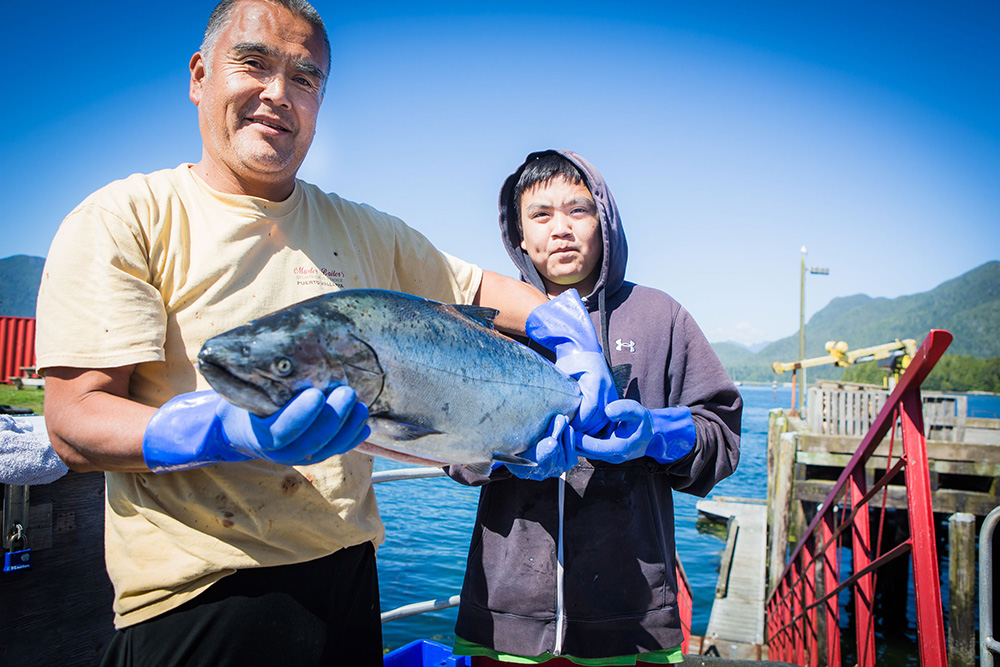IronNoggin
Well-Known Member
There are some interesting changes in this year's version:
Nog
Nog
What are the interesting changes?There are some interesting changes in this year's version:
Nog
All good controls over those who have attempted to industrialize this fishery, and operate outside the court defined area. Very harmful to the original stated intent of the commercial opportunity - which was a small artisanal fleet that would give a lot of people opportunity to get involved in the fishery and provide economic opportunities to a wide number of people within the community - something I think the non-indigenous community can support whole heartedly.Biggest one for me was the insistence of GPS tracking devices on all standard sized trollers involved in the fishery.
Must send GPS coordinates in every 15 minutes, or License gets yanked.
Guess that is the government's attempt to keep them withing their defined areas, something they have never willingly complied with. Uncertain if it will work, as they simply told DFO to eff off when caught operating outside of those areas historically (with zero consequences of course).
Time will tell...
There are many others, including the note that the government wants to do away with their use of the full sized trollers.
Others include adding various species to their list etc.
Nog
DFO is now in the back seat. This court case will now be used to expand the FN access to all fish.All good controls over those who have attempted to industrialize this fishery, and operate outside the court defined area. Very harmful to the original stated intent of the commercial opportunity - which was a small artisanal fleet that would give a lot of people opportunity to get involved in the fishery and provide economic opportunities to a wide number of people within the community - something I think the non-indigenous community can support whole heartedly.
Good to hear DFO is apparently listening to the input provided to address the industrialization of the fleet. I'm sure anyone who has worked in the commercial fishery can attest to how the catching power of the fleet increased over the years with more and better technology being advanced - the same is now happening in the 5 Nations fishery. What will happen over a short time is fewer and fewer boats will be required to catch the available TAC. That will end up forcing many people from within the community out of the fishery - the exact opposite of the original intent and the Court decision. Crazy.
DFO is now in the back seat. This court case will now be used to expand the FN access to all fish.
Sure hope so but with the way the Liberals are handling things these days you never know anymore. All for one and none for all.The latest ruling will be appealed.
Nog
Maybe they can learn from the mistakes of the past 100 yrs that allowed Jimmy to concentrate everything and force everyone to dance to the man. Keep it small boat, fresh troll caught, high grade fish and everyone can benefit including the long term viability of Wild Salmon. Wild Salmon cannot sustain another Wild West, all or nothing Bonanza Fishery and historically speaking I don't think First Nation's ever fished that way either or there would never have been any fish returning to spawn never mind sustaining upriver Tribes.Stupid ruling by the appeals court. The original ruling to keep it small scale was the right one. How do you have it large scale and have everyone participate you can't. there isn't enough fish.
From what i read in the first judgment there was a lot of support to keep it small scale from members of the 5 nations too. That band members that used small boats complained the the commercial operators in large boats were fishing it all out.
There going to end up with a derby fishery where a few boats take all the fish and the wealth is all concentrated for a few people. Oh well its there fishery just give them the quota and let them figure it out but the point was to have wide scale participation.
Where do you deduce that? I'm not so sure this judgment is actually a big win. The media is a bit of spin doctoring by the Nations. As I read the judgment its no slam dunk victory. Its a recipe for industrialization of the fishery which will not bode well for the community at large over the fullness of time. Fewer and fewer boats as the fleet invests in greater catching power technology...sort of what happened to the commercial seine fleet with the advent of technology change (more sets in less time). Crap is coming, they just don't see it yet.The latest ruling will be appealed.
Nog

Where do you deduce that?

